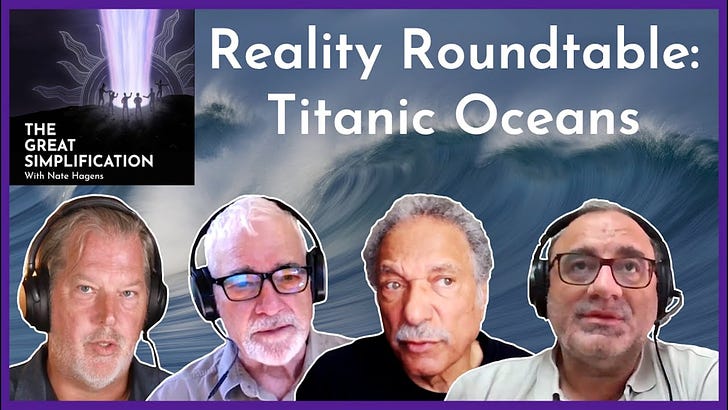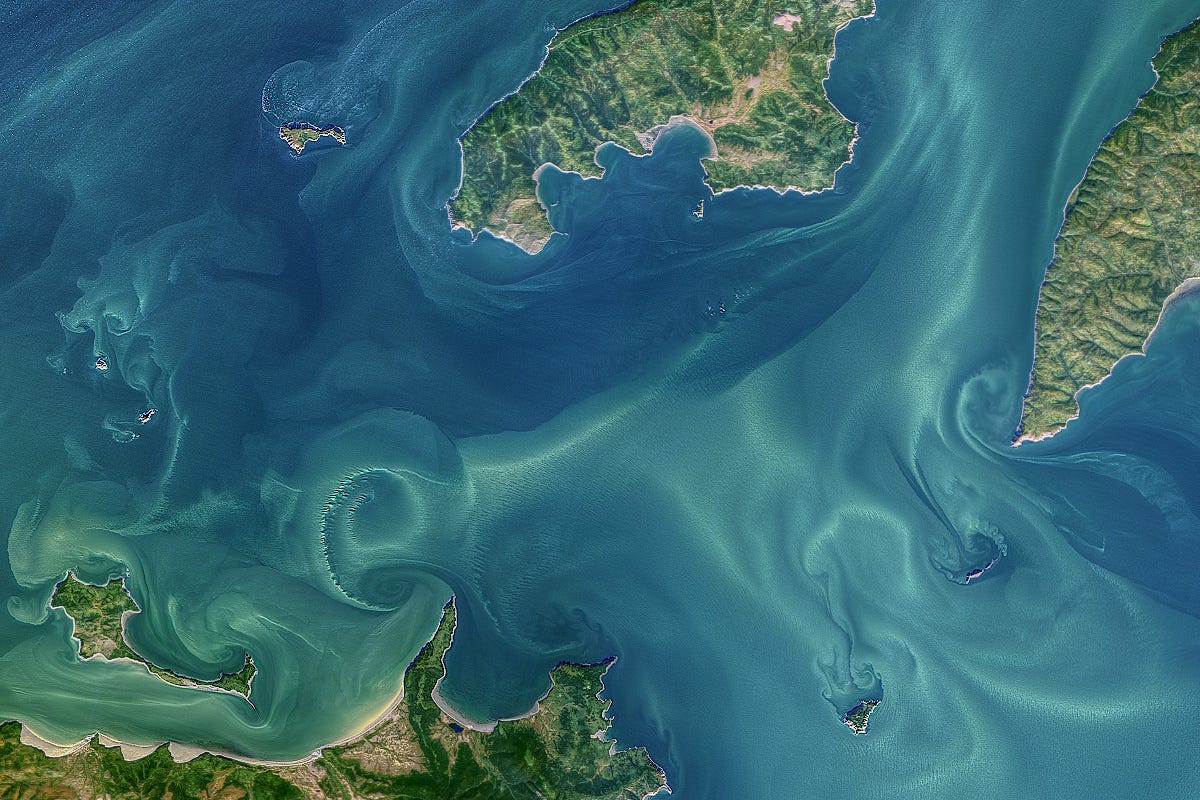On this Reality Roundtable, marine biologist Daniel Pauly, ocean physicist Antonio Turiel, and paleobiologist Peter Ward join me to discuss the numerous oft-overlooked threats to the Earth’s great oceans. From overfishing and plastic pollution to climate change and acidification, the human system is assaulting one of the most important regulators for our climate and the largest habitat for life - anywhere.
Dr. Daniel Pauly is a Killam Professor at the University of British Columbia. In 1999, Daniel Pauly founded, and since leads, a large research project, Sea Around Us, devoted to identifying and quantifying global fisheries trends.
Antonio Turiel Martínez is a scientist and activist with a degree in Physics and Mathematics and a PhD in Theoretical Physics from the Autonomous University of Madrid. He works as a senior scientist at the Institute of Marine Sciences of the CSIC.
Peter Ward is a Professor of Biology and Earth and Space Sciences at the University of Washington. He is author of over a dozen books on Earth's natural history.
What early indicators of climate impacts are these great bodies of water showing us as we hit record heat across the oceans, fish populations dwindle, and major currents slow? Why are concerns for the ocean so overlooked and what further research needs to be done? Will we learn to value these high seas for all the priceless value they give us, or will we take them for granted until it’s too late?
In case you missed it…
This past Friday, I broke down an oft used concept from my work - the Carbon Pulse. A one time massive consumption of fossil hydrocarbons at a pace millions of times faster than they were created. In this reflection, I outline the many shapes that this pulse could take, as well as some shapes it will never take due to the finite nature of these compact, energy dense fossil hydrocarbons.
Compared to previous carbon pulses that led to mass and minor extinctions, how does the modern pulse compare? What can what we know about ecology and human behavior tell us about the most likely paths into descent? Can thinking about these graphs on such grand geologic time scales help guide us away from the Precipice and towards a more Sapient Future?
If you appreciate The Great Simplification podcast…
Be sure to leave a review on your preferred podcast platform! Leaving reviews helps the podcast grow, which helps spread awareness of our systemic situation from experts in ecology, energy, policy, economics, technology, and community building so that we can better understand - and respond to - the challenges of the coming decade.
The Great Simplification podcast is produced by The Institute for the Study of Energy and Our Future (ISEOF), a 501(c)(3) organization. We want to keep all content completely free to view globally and without ads. If you’d like to support ISEOF and it’s content via donation, please use the link below.






Absolute gratitude for this discussion and all the work you and your colleagues are doing to enlighten the world population on all aspects of the dire predicament we have brought upon ourselves affecting every aspect of life on this planet Earth. Devastatingly heartbreaking on the one hand, illuminating on the other. Most grateful for this high caliber presentation.